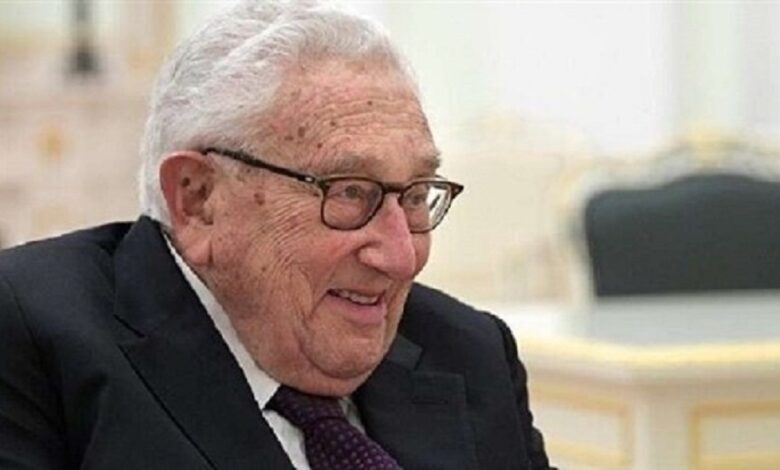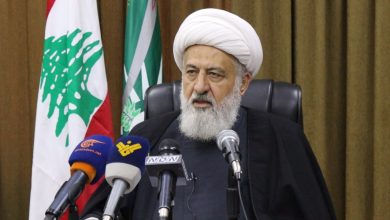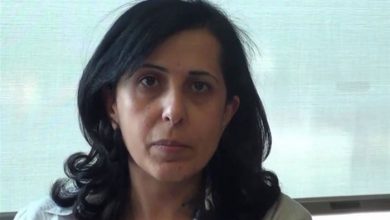
الحوار نيوز- خاص
في السادس من آذار عام 2014 ،نشر وزير الخارجية الأميركي الأسبق هنري كيسنجر مقالًا في صفحة الرأي في صحيفة “الواشنطن بوست” الأميركية بعنوان “كيف تنتهي الأزمة الأوكرانية؟.
قال كيسنجر يومها إن النقاش العام حول أوكرانيا يتمحور حول المواجهة، من دون أن يعني ذلك أن الولايات المتحدة تدرك إلى أين يتجه الأمر، مذكرًا أنه شهد في حياته المهنية أربعة حروب بدأت بحماس كبير ودعم شعبي، “ثلاث منها انسحبنا منها بصورة أحادية”، وتاليًا فإن المهم في الحروب هو كيف تنتهي لا كيف تبدأ.
وإذ اعتبر أن المسألة الأوكرانية تُطرح على أنها صراع بين الشرق والغرب، فإن على كييف أن تكون جسرًا بين الاثنين. ذلك أنه على روسيا القبول بأن محاولة جعل أوكرانيا دولة تدور في فلكها سيكون إعادة لتاريخ من الصراع مع أوروبا والولايات المتحدة، وعلى الغرب الفهم أن أوكرانيا لن تكون يومًا مجرد بلد جار لروسيا، فقد كانت جزءًا منها على مدى قرون. كما أن معركة بولتافا عام 1709 التي تُعد من رموز الحرية الروسية، خيضت على الأرض الأوكرانية.
ورأى كيسنجر أن على الاتحاد الأوروبي الإقرار أن إجراءاته البيروقراطية والأخطاء في التفاوض مع أوكرانيا حوّلت المسار التفاوضي إلى أزمة، ذلك أن “السياسة الخارجية هي فن تحديد الأولويات”.
وفي نظره أن العامل الحاسم في هذه الأزمة هو الأوكرانيون أنفسهم، فهم ينتمون إلى بلد بتاريخ معقد، الجزء الغربي منه ضُمَ إلى الاتحاد السوفياتي عام 1939، بينما صار القرم، و60 في المئة من سكانه من الروس، جزءًا من أوكرانيا عام 1954 في عهد نيكيتا خروتشيف الأوكراني المولد.
أضف أن غرب أوكرانيا كاثوليكي بمعظمه، والشرق أرثوذكسي بغالبيته. الغرب يتحدث بالأوكرانية، والشرق بالروسية. وأي محاولة من أي جناح أوكراني للهيمنة على الآخر ستقود إلى حرب أهلية أو انفصال.
وذكَر كيسنجر بأن استقلال أوكرانيا حديث العهد، 23 سنة فقط، بينما خضعت البلاد للحكم الأجنبي منذ القرن الرابع عشر، وهذا جعل زعماءها لا يجيدون فن المساومة.وتشير سياسات أوكرانيا المستقلة إلى أن جذور المشكلة تكمن في جهود السياسيين الأوكرانيين لفرض إرادتهم على الأجزاء الأخرى من البلاد.هذا هو جوهر الصراع بين فكتور يانوكوفيتش وغريمته يوليا تيموشينكو، فكل منهما يمثل جناحًا لأوكرانيا، وهما غير مستعدان لتقاسم السلطة.
واعتبر أن الغرب وروسيا تجاهلا كل تلك الحقائق، وعلى الرئيس الروسي فلاديمير بوتين إدراك أن الخيار العسكري يؤدي إلى حرب باردة جديدة، وعلى الولايات المتحدة التوقف عن اعتبار أن على روسيا الخضوع لقواعدها، مع الإقرار أن فهم التاريخ الروسي ليس نقطة قوة لصانعي السياسة الأميركيين.
وعرض تصوره لما يتوجب على الجميع فعله:
- أولًا، أن يكون لأوكرانيا الحق في أن تختار بحرية صلاتها الاقتصادية والسياسية، بما في ذلك مع أوروبا.
- ثانيًا، ليس عليها الانضمام إلى حلف شمال الأطلسي.
- ثالثًا، أن تتمكن من اختيار الحكم الذي يجسد إرادة مواطنيها، من دون معاداة روسيا.
- رابعًا، إن ضم روسيا للقرم يخالف قواعد النظام العالمي القائم، وعلى أوكرانيا تعزيز الحكم الذاتي في القرم.
نص المقال باللغة الإنكليزية
How the Ukraine Crisis Ends?
by Henry A. Kissinger
The Washington Post
March 6, 2014
Public discussion on Ukraine is all about confrontation. But do we know where we are going? In my life, I have seen four wars begun with great enthusiasm and public support, all of which we did not know how to end and from three of which we withdrew unilaterally. The test of policy is how it ends, not how it begins.
Far too often the Ukrainian issue is posed as a showdown: whether Ukraine joins the East or the West. But if Ukraine is to survive and thrive, it must not be either side’s outpost against the other — it should function as a bridge between them.
Russia must accept that to try to force Ukraine into a satellite status, and thereby move Russia’s borders again, would doom Moscow to repeat its history of self-fulfilling cycles of reciprocal pressures with Europe and the United States.
The West must understand that, to Russia, Ukraine can never be just a foreign country. Russian history began in what was called Kievan-Rus. The Russian religion spread from there. Ukraine has been part of Russia for centuries, and their histories were intertwined before then. Some of the most important battles for Russian freedom, starting with the Battle of Poltava in 1709 , were fought on Ukrainian soil. The Black Sea Fleet — Russia’s means of projecting power in the Mediterranean — is based by long-term lease in Sevastopol, in Crimea. Even such famed dissidents as Aleksandr Solzhenitsyn and Joseph Brodsky insisted that Ukraine was an integral part of Russian history and, indeed, of Russia.
The European Union must recognize that its bureaucratic dilatoriness and subordination of the strategic element to domestic politics in negotiating Ukraine’s relationship to Europe contributed to turning a negotiation into a crisis. Foreign policy is the art of establishing priorities.
The Ukrainians are the decisive element. They live in a country with a complex history and a polyglot composition. The Western part was incorporated into the Soviet Union in 1939, when Stalin and Hitler divided up the spoils. Crimea, 60 percent of whose population is Russian, became part of Ukraine only in 1954 , when Nikita Khrushchev, a Ukrainian by birth, awarded it as part of the 300th-year celebration of a Russian agreement with the Cossacks. The west is largely Catholic; the east largely Russian Orthodox. The west speaks Ukrainian; the east speaks mostly Russian. Any attempt by one wing of Ukraine to dominate the other — as has been the pattern — would lead eventually to civil war or breakup. To treat Ukraine as part of an East-West confrontation would scuttle for decades any prospect to bring Russia and the West — especially Russia and Europe — into a cooperative international system.
Ukraine has been independent for only 23 years; it had previously been under some kind of foreign rule since the 14th century. Not surprisingly, its leaders have not learned the art of compromise, even less of historical perspective. The politics of post-independence Ukraine clearly demonstrate that the root of the problem lies in efforts by Ukrainian politicians to impose their will on recalcitrant parts of the country, first by one faction, then by the other. That is the essence of the conflict between Viktor Yanukovych and his principal political rival, Yulia Tymoshenko. They represent the two wings of Ukraine and have not been willing to share power. A wise U.S. policy toward Ukraine would seek a way for the two parts of the country to cooperate with each other. We should seek reconciliation, not the domination of a faction.
Russia and the West, and least of all the various factions in Ukraine, have not acted on this principle. Each has made the situation worse. Russia would not be able to impose a military solution without isolating itself at a time when many of its borders are already precarious. For the West, the demonization of Vladimir Putin is not a policy; it is an alibi for the absence of one.
Putin should come to realize that, whatever his grievances, a policy of military impositions would produce another Cold War. For its part, the United States needs to avoid treating Russia as an aberrant to be patiently taught rules of conduct established by Washington. Putin is a serious strategist — on the premises of Russian history. Understanding U.S. values and psychology are not his strong suits. Nor has understanding Russian history and psychology been a strong point of U.S. policymakers.
Leaders of all sides should return to examining outcomes, not compete in posturing. Here is my notion of an outcome compatible with the values and security interests of all sides:
- Ukraine should have the right to choose freely its economic and political associations, including with Europe.
- Ukraine should not join NATO, a position I took seven years ago, when it last came up.
- Ukraine should be free to create any government compatible with the expressed will of its people. Wise Ukrainian leaders would then opt for a policy of reconciliation between the various parts of their country. Internationally, they should pursue a posture comparable to that of Finland. That nation leaves no doubt about its fierce independence and cooperates with the West in most fields but carefully avoids institutional hostility toward Russia.
- It is incompatible with the rules of the existing world order for Russia to annex Crimea. But it should be possible to put Crimea’s relationship to Ukraine on a less fraught basis. To that end, Russia would recognize Ukraine’s sovereignty over Crimea. Ukraine should reinforce Crimea’s autonomy in elections held in the presence of international observers. The process would include removing any ambiguities about the status of the Black Sea Fleet at Sevastopol.
These are principles, not prescriptions. People familiar with the region will know that not all of them will be palatable to all parties. The test is not absolute satisfaction but balanced dissatisfaction. If some solution based on these or comparable elements is not achieved, the drift toward confrontation will accelerate. The time for that will come soon enough.
Henry A. Kissinger was secretary of state from 1973 to 1977.





